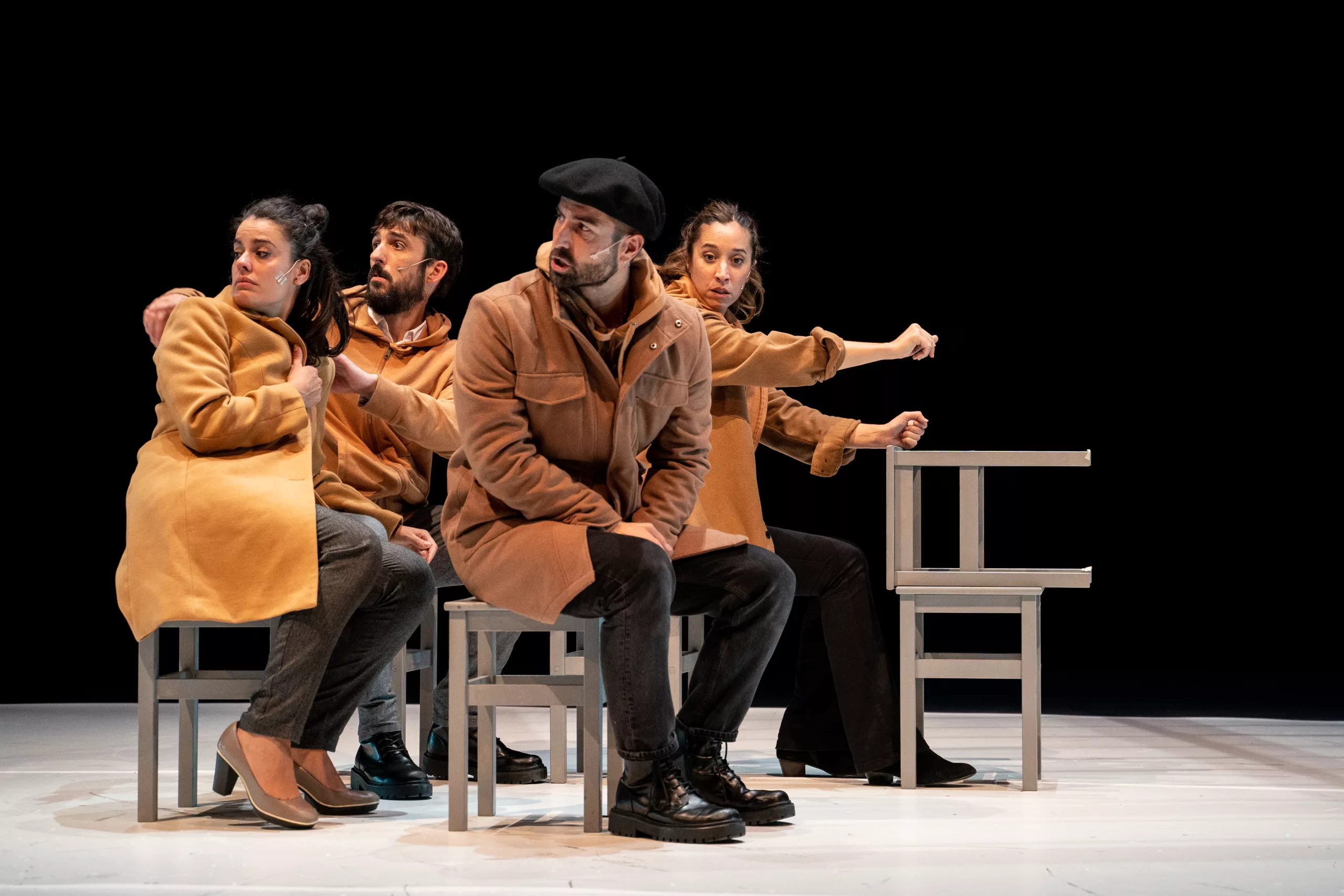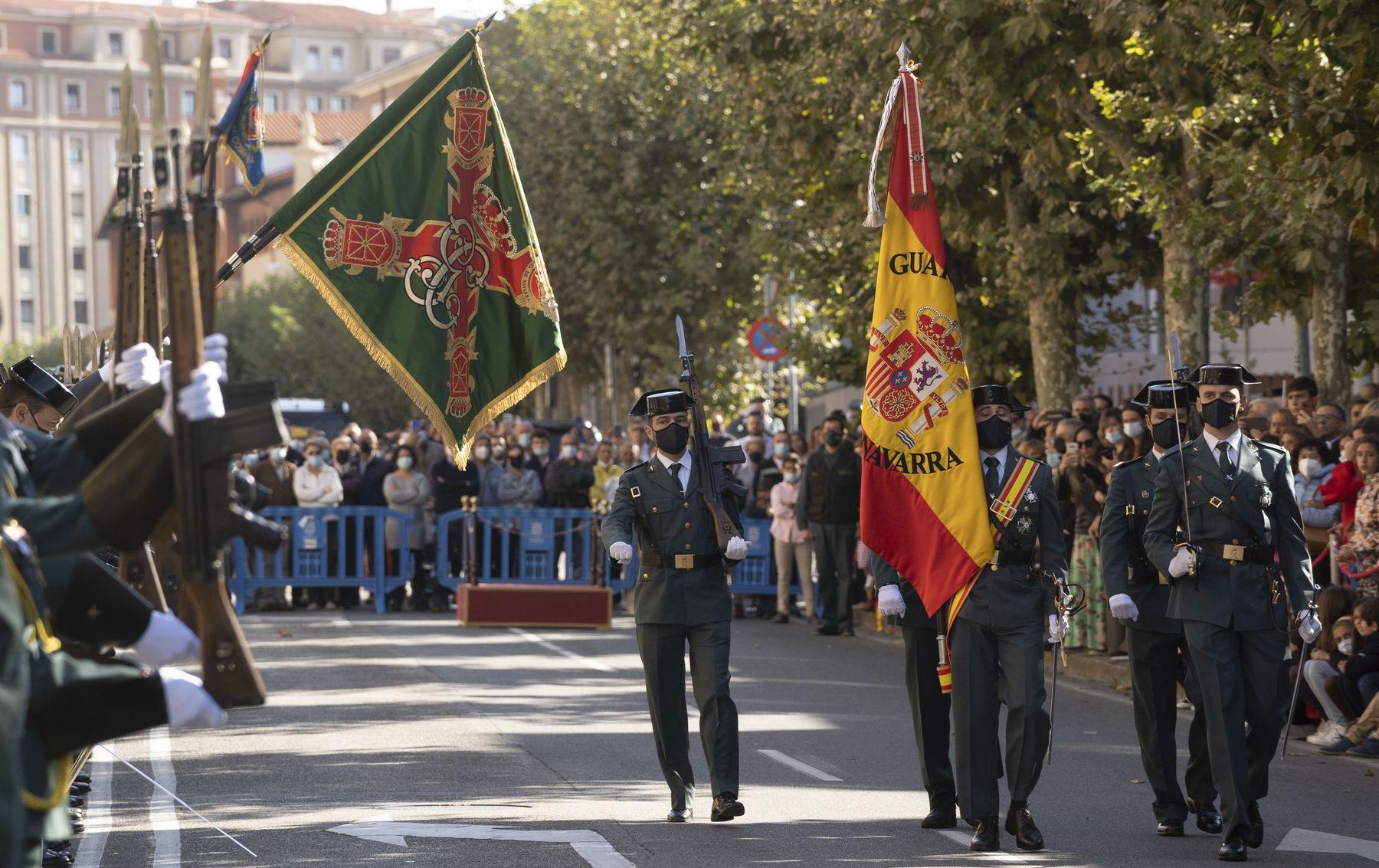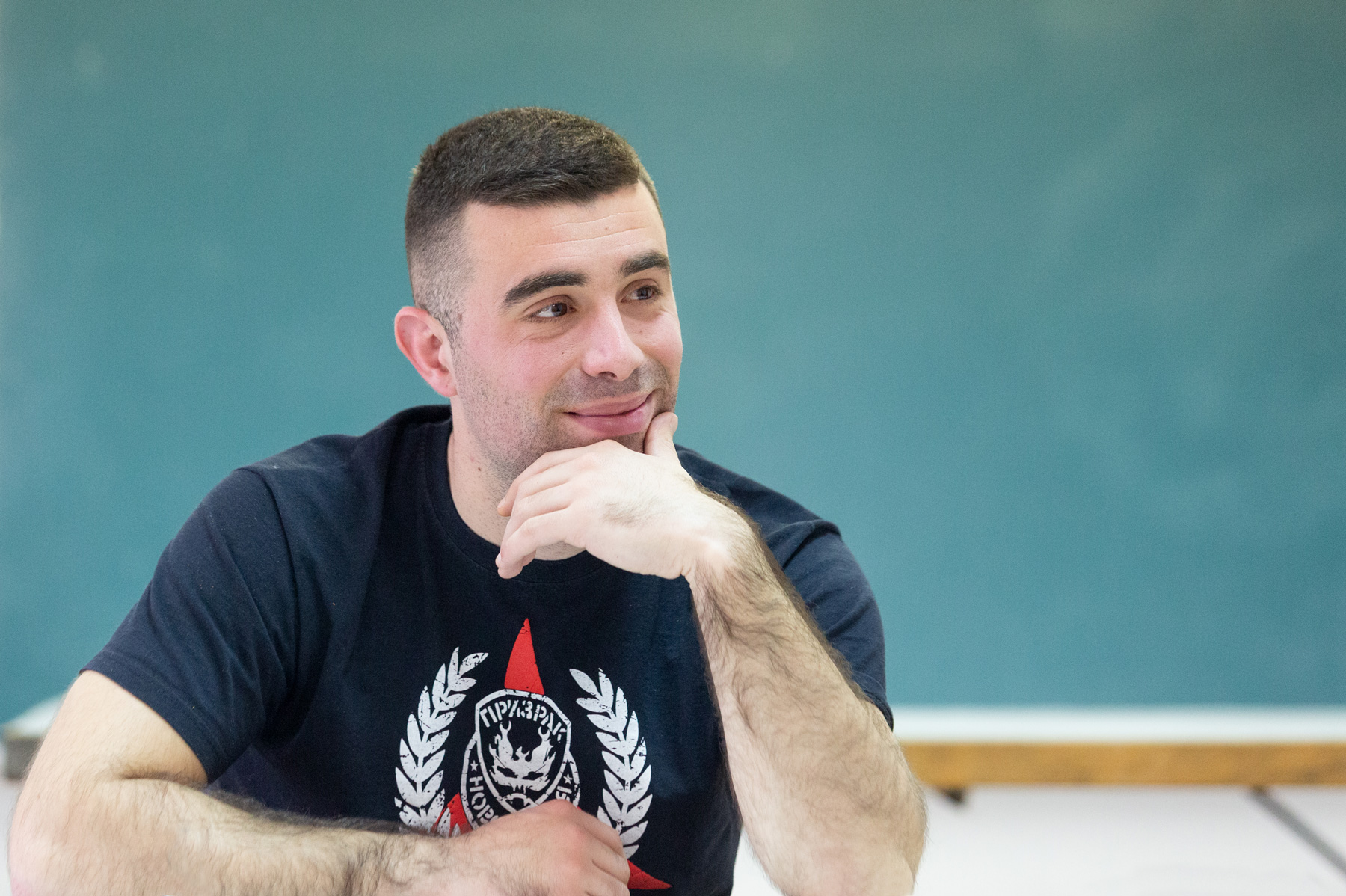"A reflection of the surprise that the matter has generated: some civil servants and guards have also expressed their solidarity with me"
- Jokin Unamuno Goikoetxea has been temporarily imprisoned in the Altsasu case for 19 months. Guaixe answers the questionnaire sent by the weekly Estremera prison. He had just learned of the verdict, but was not aware of the prosecutor’s appeal and the demonstration in Pamplona.

A year and a half in prison. You also have to get used to it... getting
used to it is a lot to say. Human beings have the ability to cope with difficult situations, and often to reverse them, and as time goes on, you “get” into prison life. But I'd say the prison doesn't get used to it.
What is a “normal” day? What do you do for hours?
I spend 8 hours in the yard and 16 hours in the cell. If you plan to complete the day, the day passes quickly. I try to deal with the body and the brain. That’s why I do a lot of sports to work on the physique (running, football, muscle building...) and to work on the brain I read books and newspapers, I work on chess, lady play and the like, sudoku... Keeping the mind busy is very important because if you don’t do it you start to turn your head and you run the risk of descents. On the other hand, in terms of training, I have enrolled in several courses, although I have not been called to attend any of them, and once the resources are finished and depending on the punishment that we will have, I will begin to study a university degree.
How do you relate to the rest of the prisoners?
My relationship with the rest of the prisoners is good. I haven’t had any problems since I came in. You get to trust a smaller number of prisoners and you make a kind of group, and I stay in that group for a long time. You talk to all the prisoners. In addition, I have had the opportunity to get to know different cultures, customs and languages while being accompanied by people from different countries.
Are they aware of your situation?
Everyone is aware of our situation. As a curiosity, I found out because an inmate told me about the criminal suit we had. As I said, everyone is aware of our situation and has expressed their solidarity with me because they are surprised by the matter. To be quiet, they give me a lot of encouragement to say that things will finally be resolved. A reflection of the surprise that this matter has generated: some civil servants and guards have also expressed their solidarity with me.
Did you imagine the prison like that?
Prison is always bad because you have to live between four walls and you are in control at all times. That said, life in here is better than I imagined. I only knew the way Basque prisoners live, and the way we live is more flexible. If I was in first grade, the situation would be different.
The trial itself would be a way to break the “routine” until then, wouldn’t it?
That's how it was, yeah. Being able to see the people of the town and the rest of the defendants during the trial meant being able to “put aside” the prison. In addition, it was the first time in 17 months that we were released from prison, and I could see something other than the wall from the window of the van and hearing people scream when I arrived at the National Court gave me a lot of strength to be able to face those days.
The eight of you met in the courtroom. How are you doing?
I was very excited to see the defendants. Although we didn’t have time to talk much, I felt that we gave each other encouragement and support and that was important. Since I was with Adri and Selva all the time (in the peseta and in the dungeon), we were able to talk a lot. We explained the day to day that we each have, we talked about the circumstances of the trial, we also laughed... We had time for everything. The last day was hard because we knew that once the trial was over we had to be without seeing each other for a long time. These last moments served to give us strength and we also agreed that we should be calm when the sentence came, so as to avoid a great decline, and I think it has served.
You had a chance to give your version at the trial.
Since the beginning of this litigation only the version of Guardia Civil and their partners has been used. And that made the snowball bigger and bigger. At the trial, each of us, including witnesses, had the opportunity to recount what happened and lived that night. If we read the sentence, what we said was useless. I was quite clear that this would happen in the National Court, but I hope it will be useful in the Supreme Court.
What impression did the trial leave on you?
I thought that what was defended from the beginning was clear and clear. The fact that terrorism could not be taken at all during the trial stood out, despite the great circus of the judges and the accusations. When their witnesses and experts had to respond to our lawyers, they either didn’t remember it or gave surprising answers. While being questioned about Ospa!, a civil guard said that the violent actions carried out by this assembly were the installation of posters and banners, an argument that was intended to be used to make an impossible connection with terrorism. During the trial, the jury accepted a number of previously revoked evidence, and the accusations denied a video they wanted to present (although this video was later viewed). We all knew that observers should be present at the trial, and I think that all this was an approach to observers, with the aim of abandoning the issue of defenselessness. However, as I said before, I thought that the trial went well and I still think the same today because the sentence has nothing to do with the incident at the trial.
You have to deal with the demand for terrorist sanctions. What do you think of this request?
It seemed to me that the petition was pointless and I believe that the prosecution considered it the same, in view of this second petition. It was clear to me that the terrorism thing would fall, although I thought it would be in the Supreme. My fear was different. I was of the opinion that if, despite the suppression of terrorism in the sentence, we were subjected to heavy sanctions, a great victory would be achieved and the flood of solidarity would disappear. As you can see, I was wrong.
Is there a lot of confusion in this case?
Since the beginning of the matter, we have all tried to give a reason for everything that has happened. They wanted to oppose the government of Navarre; they wanted to give more support to the State Security Forces to make it clear what can happen in the future when they touch a policeman; they wanted to instill fear in the Basque youth... All these theories will probably be true, but I think all this is easier. Since the Spanish State has no political arguments to confront the new era in which the Basque Country lives, it wanted to continue the dynamic that has worked so far, extracting terrorist crimes in no way. This is reflected in the case of the Oréans and ourselves.
Was it a coincidence that Altsasun happened?
I'm guessing there's no one who thinks it was like that. At a time when the street was quite quiet (especially with this theme), every year Ospa! organizes the day against repression, the Day of Fame, and thanks to the Civil Guard and the media, this day became very popular. Taking advantage of all this, the Koška event was used to create a monstrous montage, with the aim of criminalizing a legitimate claim that I explained in the previous question.
And how does being in the middle of all this make you feel?
Anger and fear. After all, with the events that have been tried, usually no one is imprisoned (recently in the court of Pamplona they have been sentenced to 21 months for similar events, the incident in Aljeciras...), but we are on the road for two years and we can stay for a long time if things do not change. Hopefully, there will be justice at some point. In the meantime, both we and all those who are out there must move forward, giving each other encouragement and strength.
How have you experienced what you’ve done abroad so far?
The wave of solidarity with us has been a source of applause. Many initiatives have been organised, with the participation of different people... The way in which the issue has been dealt with has been very appropriate, although I believe there have been shortcomings.Now is the time for resources and mobilizations must be continued to prevent this issue from being extinguished in society. Thank you and cheer up!
You expect it when you go out
on the street... I don't expect anything special. Although I find it very difficult, I hope that all the movement that has been created will be diverted to other demands, because there are still countless struggles to be carried out, and they will remain.
This interview has been published by Guaix and we have brought it with us thanks to the Creative Commons license.
Fusilamenduak, elektrodoak eta poltsa, hobi komunak, kolpismoa, jazarpena, drogak, Galindo, umiliazioak, gerra zikina, Intxaurrondo, narkotrafikoa, estoldak, hizkuntza inposaketa, Altsasu, inpunitatea… Guardia Zibilaren lorratza iluna da Euskal Herrian, baita Espainiako... [+]
Giza Eskubideen Europako Auzitegiak ez du aintzat hartu Altsasuko gazteek epaiketa bidezkoa izan zuten aztertzeko eskakizuna. Auzipetutako gazteetako batek, Iñaki Abadek, eman du jakitera berria.






















